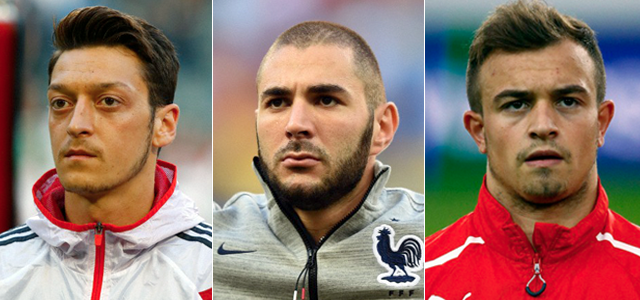
Ramadan, which begins this weekend, is widely observed by Muslims around the world with fasting from sunrise until sundown. That creates a potential dilemma for Muslim players at the World Cup whose teams have advanced to the knockout stage of the tournament, as the ninth month of the Islamic calendar and the World Cup overlap for the first time since 1986.
Although the exact religious makeup of the teams’ rosters is unclear, Muslims comprise 11% of the collective population of the 16 countries that advanced out of the tournament’s group stage, according to 2010 data from the Pew Research Center’s Global Religious Landscape report. Several prominent players on teams that are still alive – including Germany’s Mesut Ozil, France’s Karim Benzema and Switzerland’s Xherdan Shaqiri – are practicing Muslims. The national team of Algeria, a country comprised of 98% Muslims, advanced on a goal by Islam Slimani and will face Germany on Monday.
While some Muslim athletes choose to fast while competing, others see room for interpretation in the Quran, which instructs “whosoever of you is present, let him fast the month, and whosoever of you is sick or on a journey, a number of other days.” Some Islamic leaders endorse fasting at a later date, especially if it is “a once-in-a-lifetime opportunity for an athlete,” a London-based imam told the soccer website Goal.com in 2011. The High Egyptian Islamic Council even issued a fatwa before the 2012 London Olympics, allowing athletes to eat and drink during Ramadan.
Taken as a whole, the countries that have advanced past the group stage are overwhelmingly Christian. Along with the 11% that is Muslim, the combined population of those nations is 74% Christian and 12% religiously unaffiliated (and 1% or less Jewish, Hindu, Buddhist or something else), according to our 2010 report.
Algeria and Nigeria are the only countries still alive at the World Cup that are outside of Europe and the Americas, both regions with large Christian majorities. Algeria is the only one with a Muslim majority, while Nigeria has roughly equal numbers of Christians and Muslims.
All of the World Cup’s previous winners are Christian-majority nations.



